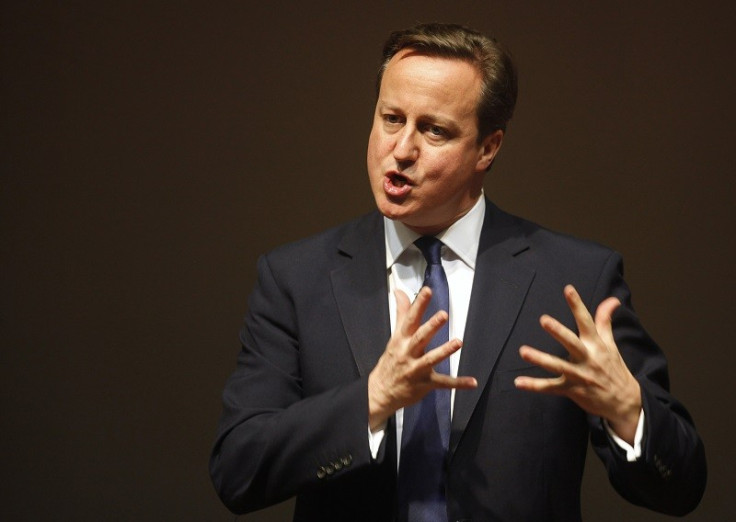David Cameron Targets EU Migrants over 'Benefit Tourism' [VIDEO]

Prime Minister David Cameron wants to make it harder for European Union migrants to access the UK's welfare system and tackle "benefit tourism" in Britain.
The Conservative party leader's comments come before EU restrictions on Bulgarian and Romania migrants expire in January, enabling them to freely travel and work in the UK.
Cameron hopes to reassure the public that there will not be a wave of immigrants from the two EU states, while countering the UK Independence Party's "open-door immigration" opposition ahead of the European elections next year.
The prime minister told the Financial Times that, among other things, he wanted to change the law so that new EU migrants would have to wait three months before they could access unemployment benefits.
In addition, Cameron said that no newly arrived EU jobseekers would be able to claim housing benefit and a new minimum earnings threshold would be introduced before benefits such as income support could be claimed.
Cameron's proposals also included a measure that would mean any EU national sleeping rough or begging would be deported and barred from re-entry for a year "unless they can prove they have a proper reason to be here".
He also disclosed plans to try to renegotiate the way EU freedom of movement rules are applied to make it harder for people from poorer countries in the 28-nation bloc to relocate to richer countries.
But Ukip leader Nigel Farage claimed Cameron's measures were not "nearly good enough".
"These measures fall way short of what the British public want though. Our borders will remain open. Migrants will still be entitled to out-of-work benefits after just three months," Farage said.
"As for the suggestion that the government will deport homeless migrants, it would seem highly unlikely given that currently less than one in 60 tip-offs on migrants who are here illegally lead to deportation.
"And of course these people could always come back."
The principle of free movement of people remains a fundamental tenet of the EU's single market and the issue is likely to feature heavily in the European parliamentary elections in May.
© Copyright IBTimes 2025. All rights reserved.






















